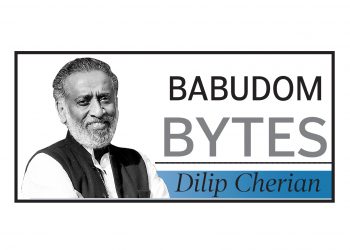For years, officers within India’s Central Armed Police Forces (CAPFs) have quietly seethed at the glass ceiling above them; one made not of merit, but of deputation. Top posts in CRPF, BSF, CISF and other forces were long dominated by Indian Police Service (IPS) officers parachuted in from state cadres, while equally capable insiders watched their career graphs stagnate.
The Supreme Court’s latest refusal to review its May 2025 ruling, which ordered a phased, two-year reduction of IPS deputations to CAPFs, is more than a bureaucratic adjustment. It’s a long-overdue course correction. The court’s message to the Ministry of Home Affairs (MHA) is unambiguous: build institutions, not dependencies.
The ruling recognises CAPFs as Organised Group-A Services, giving their officers long-denied perks like non-functional financial upgradation and structured career progression. More importantly, it restores dignity to their leadership ranks. These are men and women who’ve spent decades in border zones and Maoist belts rather than conference rooms in state secretariats.
Of course, the MHA’s reluctance to let go is understandable. Old hierarchies die hard, and the IPS lobby is nothing if not resilient. But with the review petition now dismissed, it’s time for the ministry to stop sulking and start implementing. The paramilitary forces have earned their autonomy.
North Block’s missing signature
It’s been four months since Ajay Seth moved from North Block to IRDAI, and India still doesn’t have a Finance Secretary. For a ministry that drives everything from taxation to reform, that’s like flying without a pilot. Six powerful departments—Revenue, Expenditure, Economic Affairs, Financial Services, Public Enterprises, and DIPAM—are running solo, while the one person meant to keep them in sync is missing in action.
Cabinet Secretary TV Somanathan is said to be doubling up, but that’s hardly ideal. With the Budget season fast approaching, the gap isn’t just procedural, but perilous. The Finance Secretary isn’t just a post; it’s the ministry’s nerve centre, the one that ensures coordination, discipline, and policy coherence across the board.
Without that anchor, inter-departmental drift is inevitable. Each arm starts chasing its own agenda, and before long, the ministry begins to sound like an orchestra without a conductor: busy, but off-key.
There’s also the matter of perception. Markets, rating agencies, and global institutions read such silences closely. The absence of a clear fiscal leader suggests indecision at the top, not confidence. The Finance Ministry may still function, but without its designated head, India’s fiscal ship risks looking adrift—just when steady hands are most needed.
Time someone picked up that one-rupee note and signed it!
Why India’s babudom needs a hard reset
A post on social media about a Rajasthan officer’s spouse reportedly earning Rs 37.54 lakh from private firms without any record of work done has once again exposed the rot beneath India’s bureaucratic polish. We like to talk about “efficient administration” and “good governance,” but the reality often looks more like a private club where privilege trumps principle and accountability is just a decorative word in annual reports.
What’s alarming is not just the incident itself, it’s how unsurprising it feels. When those close to public office can pocket hefty sums from private players without raising red flags, it shows how blurred the lines between duty and indulgence have become. Babus were meant to serve the people, not be served by corporate patronage. Yet, the system’s moral compass seems to have gone conveniently magnetic, always pointing towards power and influence.
Transparency, meanwhile, remains a selective exercise. Probes are announced with much fanfare, reports leak in dribbles, and the conclusions, if they ever come, rarely shake the walls of entitlement. We hear endless chatter about digitisation, e-governance, and accountability dashboards, but the reality behind closed doors is a culture that quietly rewards silence and complicity.
For the many honest officers who still take their oath seriously, such episodes are more than just embarrassing; they’re demoralising. When shortcuts and “contacts” yield faster dividends than merit or efficiency, what message does that send to those trying to play by the book?
The reputational damage is immense. India wants to project itself as a place of clean governance and ease of doing business, but that narrative crumbles when bureaucratic power is seen as transactional. The world notices. Investors notice. Citizens notice.
The Rajasthan episode is just a symptom; the disease runs deeper. If governance wants to match our aspirations, it needs to move beyond slogans and ceremonies to real accountability.
By Dilip Cherian
